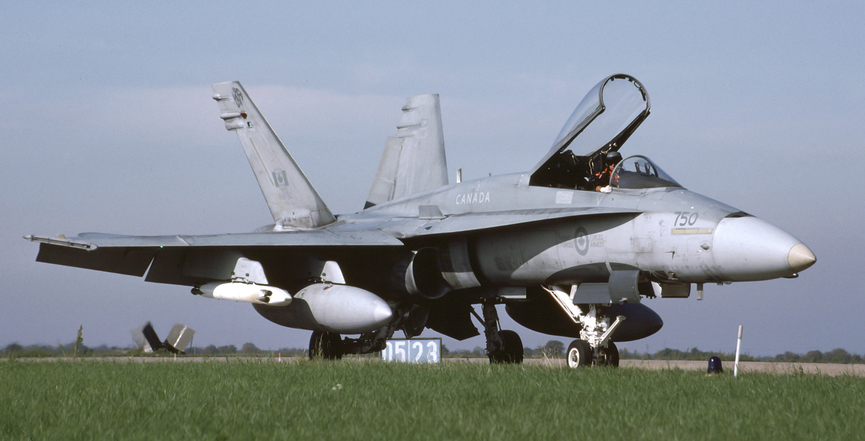Serious questions remain unanswered about the relative economic benefits of the federal government’s future fighter capability project.
Winnipeg Free Press columnist Martin Cash writes:
“As part of the process, the manufacturer of the winning bid — now between Boeing, Lockheed Martin and Saab — must provide a plan whereby they will eventually invest in the Canadian economy an amount equal to the value of the contract. That’s called the Industrial and Technological Benefits (ITBs) … On Tuesday, Boeing released a little more detail about its ITB program should the Canadian Defence Department choose its Block III Super Hornet jet fighter, including five top-tier Canadian partners who will be part of the ITB and who will specifically contribute to production of the Super Hornet.”
Cash adds:
“Boeing’s economic development consultants, Ottawa-based Doyletech Corp., estimates that if the Super Hornet is chosen … the ITB economic benefits to Canada over 40 years of service, including direct, indirect, and induced effects, is projected to be $61.1 billion creating 248,176 person years of jobs.”
And yet Cash — and the federal government — have left unexplored a comparative look at the job creation multipliers of the $19 billion purchase cost of new warplanes.
For instance, the Canadian Labour Congress has pointed out that a $17.6-billion investment in public transit could create 223,000 person years of jobs.
And given figures from a previous auditor general report suggest that the sustainment costs of new fighter jets could be an additional $25.7 billion over 20 years, we should also look at how those public funds could be differently and more efficiently invested.
The Canadian Labour Congress has argued that a $23.3-billion investment in renewable energy would create an additional 290,000 person years of jobs.
As such, the federal government could be asked: Will the purchase of new fighter jets create more than 513,000 person years of jobs?
Others also assert that more jobs can be created by diverting public funding from war.
In the U.S. context, Phyllis Bennis has written:
“$1 billion in military spending creates approximately 11,200 jobs — but the same amount of money would create 26,700 jobs if invested in education, about two-and-a-half times as many. Or 16,800 jobs in clean energy, or 17,200 in health care.”
Similarly, research by the Costs of War Project based at Brown University’s Watson Institute for International and Public Affairs found that while $1 million spent on “defence” creates 6.9 direct and indirect jobs, the same amount invested in solar power creates 9.5 jobs, in health care 14.3 jobs, and in elementary and secondary education 19.2 jobs.
As such, we are left with questions about the process for the evaluation of the economic and job creation benefits within this acquisition program:
- When will the federal government detail the full cost of a fleet of new fighter jets over a 20-year period, rather than simply the sticker price?
- How can the public evaluate the merits of a major public expenditure without knowing the total amount that would be spent?
- What official process exists to do a comparative analysis of the industrial and technical benefits of spending billions on warplanes versus a Green New Deal?
With the federal government prepared to award $19 billion in public funds to either Boeing, Lockheed Martin or Saab in 2022 — and then spend likely an additional $25.7 billion or more on service costs over the next 20 years — a response to these questions does not seem unreasonable especially in the context of a projected $1.2 trillion federal debt and the precarity of both a pandemic ravaged economy and a global climate crisis.
To watch a recent 90-minute webinar featuring Green party MP Paul Manly, NDP MP Randall Garrison and independent Senator Marilou McPhedran discussing the proposed purchase of new fighter jets, please click here.
Brent Patterson is the executive director of Peace Brigades International-Canada. You can follow him at @CBrentPatterson @PBIcanada. This article originally appeared on the PBI-Canada website.
Image: Rob Schleiffert/Flickr




